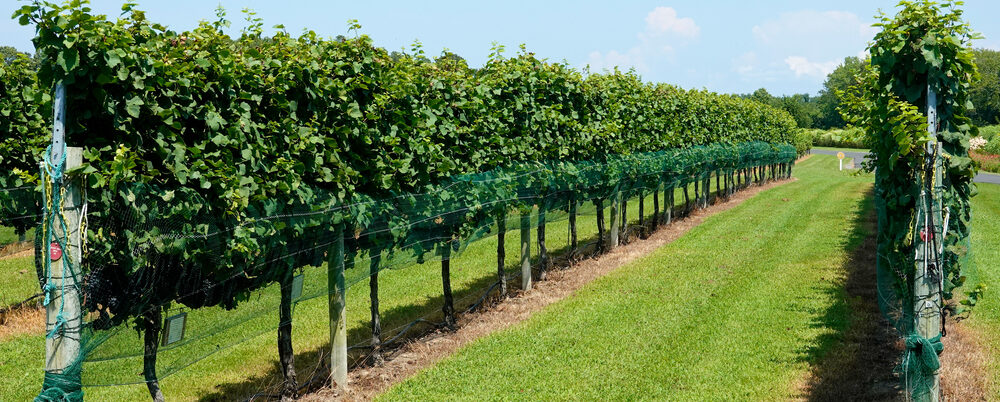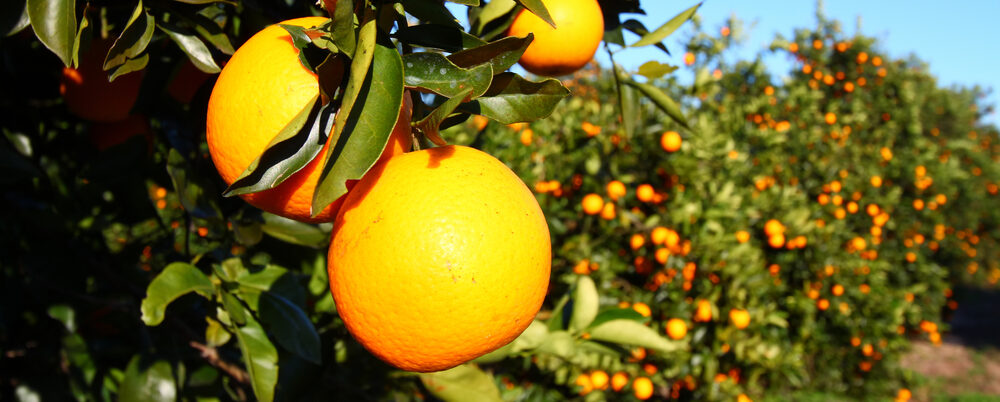Agriculture is one of the biggest industries in New Jersey, contributing more than $1 billion to the state’s economy every year. The state is one of the top three producers of cranberries in the entire United States. The state’s connection to agriculture is long and bountiful, but it is also the reason why many people in New Jersey are concerned about their exposure to a potentially dangerous chemical: “Roundup” weedkiller.
From eggplants to spinach, about 750,000 acres of land in New Jersey is devoted to agriculture, and the scope of the this industry means it touches on many other sectors. Those factors, along with the real and mounting human toll, have made the class-action lawsuits filed over Roundup a topic of great concern, both here in New Jersey and across the U.S.
What should New Jersey residents know about the lawsuits, including potential settlement offers that have been made? Most importantly, what risks might be associated with using Roundup herbicide?
What Does Roundup Do?
Roundup, also commonly referred to by the name of its active ingredient, glyphosate, is a widely available and hugely popular herbicide that is used in agriculture, commercial and municipal landscaping, and residential lawn care.
History of Roundup
Long before it came to be the most widely circulated weedkiller in history, glyphosate was used to remove calcium deposits from boilers and other large, commercial heating and plumbing equipment.
But in the early 1970s, a scientist with the Monsanto Corp., the company that also famously invented the artificial sweetener saccharin, discovered that glyphosate was also incredibly effective at killing plants.
In 1974, Monsanto patented glyphosate for that use and began selling a weedkiller that was largely made up of that chemical under the brand name Roundup.
According to scientific analysis of the chemical, it works by preventing plants from generating an enzyme they need for healthy growth. Without the enzyme, the plant quickly dies. This process does not exist in humans or other mammals, which is one reason why Roundup has for years been believed to be a safe product.
Roundup & New Jersey Agriculture
While Roundup is widely used by homeowners, landscapers, and others, it is the default herbicide used in agriculture. The popularity of Roundup Ready seeds, which Monsanto developed to tolerate being sprayed with the herbicide, is another reason glyphosate is so widely used in farming.
How widely used is it? According to the U.S. Geological Survey, about 3 million pounds of glyphosate have been used in New Jersey farming since the early 1990s.
Let’s take a closer look at farming and glyphosate in New Jersey:
- Since 1992, 2.9 million pounds of glyphosate have been used on New Jersey farm fields, which ranks 39th among all states.
- About 229,000 pounds of glyphosate were used in New Jersey farming in 2017, the most recent year for available data—making the state 40th nationally. Between 2000 and 2017, glyphosate use in New Jersey rose by nearly 160%.
- Glyphosate is the most common herbicide or pesticide used in New Jersey farming.
- Corn (29%) and soybeans (69%) combine to account for about 97% of all glyphosate used in New Jersey farms.
- New Jersey ranks first for eggplant production, third for peaches and cranberries, and fourth for asparagus, bell peppers, and spinach. It ranks 29th for soybean production, accounting for about 3.6 million bushels in 2020.
Is Roundup Dangerous?
The question of whether Roundup is safe for use is hardly a settled one, and the answer depends on whom you ask. Of the more than 125,000 class-action lawsuits and multijurisdictional litigation filed in connection with Roundup, most plaintiffs say they used Roundup and later were diagnosed with a form of cancer.
And all three cases that have gone to trial so far have involved plaintiffs diagnosed with the same type of cancer. Furthermore, all three cases resulted in verdicts in which jury members ruled that not only did Roundup cause the plaintiffs’ cancer, but also that Monsanto and its parent company, Bayer, knew of the product’s risks.
What Is Non-Hodgkin Lymphoma (NHL)?
Non-Hodgkin lymphoma, often abbreviated “NHL,” is a type of cancer that, like all forms of lymphoma, begins in the white blood cells. Many types of lymphoma are classified under the NHL umbrella, but they are different from another common type of lymphoma, Hodgkin lymphoma, which is often called Hodgkin’s disease.
Non-Hodgkin lymphoma accounts for about 4% of cancer cases, according to the American Cancer Society, which estimates that about 82,000 people will be diagnosed with it in 2021. About 21,000 people die from this cancer every year.
Any New Jersey residents who used or were otherwise exposed to Roundup should pay special attention to their body for the following symptoms (though it’s important to note that signs of NHL can vary from person to person):
- Chest pain
- Cough
- Chills
- Easy bruising
- Fatigue
- Fever
- Frequent, severe infections
- Night sweats
- Shortness of breath
- Swollen abdomen
- Swollen lymph nodes
- Weight loss
If you are experiencing any of these symptoms, it’s vital that you contact your doctor. If NHL is caught early, it can often be treated. In fact, about 73% of people who are diagnosed in the early stages will live at least another five years. Late-stage NHL has a five-year survival rate of only about 57%.
A University of Washington study found that exposure to Roundup increases the risk of non-Hodgkin lymphoma by as much as 41%.
Roundup’s Regulatory Status
In the mid-1980s, the U.S. Environmental Protection Agency (EPA) classified Roundup as a possible carcinogen, indicating there was evidence to suggest it could cause cancer. But the agency reversed course in the early 1990s and since then, it has consistently listed glyphosate as non-carcinogenic. The EPA’s determination is what keeps Roundup legal on the national level, but in many places around the world and in the U.S., the tide is turning.
In neighboring New York, a new law is set to go into effect on Dec. 31, 2021 that will make it illegal to use glyphosate on state-owned grounds, barring legal challenges.
California’s environmental agency lists glyphosate as a probable carcinogen, and dozens of communities across the state have implemented various levels of restrictions or outright bans, in some cases, even on residential use.
Glyphosate has been classified as a probable carcinogen by the World Health Organization’s International Agency for Cancer Risk, and multiple countries, including Mexico, have banned the substance or are in the process of phasing it out.
What Is the Current Status of Roundup Litigation?
As mentioned, three of the 125,000-plus cases alleging a connection between Roundup and cancer have ended in jury verdicts in favor of the plaintiffs. These three cases have resulted in more than $2 billion combined in punitive and compensatory damages, though the amounts were all reduced on appeal.
Still, what has stood up on appeal are jury members’ findings that not only does Roundup cause cancer, but also that Monsanto knew of the risks and chose to hide this information from the public.
After facing three consecutive losses in the form of multimillion-dollar jury verdicts, Bayer, the German pharmaceutical giant that purchased Monsanto a few years ago, issued multiple settlement offers in 2020, and negotiations over those offers, which total about $12 billion, are ongoing. If approved, they would end the bulk of litigation pending against Roundup, as well as set aside funds to compensate future victims.
Labeling Class-Action Settlement
Separately, a class-action lawsuit related to the label on Roundup bottles has ended in a settlement that has been approved in most states, including New Jersey. This class-action case was brought by consumers who say they were duped into buying Roundup. This misrepresentation was based on wording on the label that indicated that because the plant enzyme it attacks does not exist in mammals, the product couldn’t possibly be harmful to humans.
New Jersey residents who purchased Roundup for this reason could be eligible to receive up to $90 in compensation if they purchase Roundup after Feb. 13, 2013.
How Much Can I Get From a Roundup Lawsuit in New Jersey?
The jury verdicts reached so far are certainly enough to make anybody who has been made sick by using Roundup consider their legal options. It is important to note, however, that none of the plaintiffs in those cases will receive the original award amounts, as all have been reduced by judges on appeal. In fact, since Bayer and Monsanto have continued to appeal the results even as they issue settlement offers to other plaintiffs, none of those in the original three cases have seen a dime yet.
So, we do not know from the jury verdicts how much a person could expect to earn from a New Jersey Roundup lawsuit, but what can we tell from the settlement offer? That is also murky, since nothing has been approved yet, but it has been estimated that the average payout would be about $165,000, with certain characteristics resulting in enhanced awards.
That includes additional money for the survivors of people who used Roundup and have since died from non-Hodgkin lymphoma, particularly if they had a surviving spouse or underage children when they died.
For living victims, their age at diagnosis and severity of disease are also expected to be enhancing factors.
What Should I Do if I Have Been Affected by Roundup?
New Jersey residents who used Roundup, whether it was around their yard to control vegetation or because their agricultural or landscaping employer required it, should stop using the weedkiller, if possible. If they have used Roundup consistently or if they experience any of the symptoms we listed above, they should contact their doctor and seek an examination.
People who have used Roundup and have already been diagnosed with non-Hodgkin lymphoma may still have time to seek compensation despite the settlement offer that would end most of the ongoing litigation. In addition to a proposed $2 billion set aside for future victims, individual cases may still be brought, depending on circumstances.
The best way to ensure you receive the compensation you are entitled to is to consult with an expert Roundup class-action law firm in New Jersey. We can help connect you with a reputable firm in your area.
Consultations are usually free, and in most cases, you won’t pay any legal fees unless you win your case.





